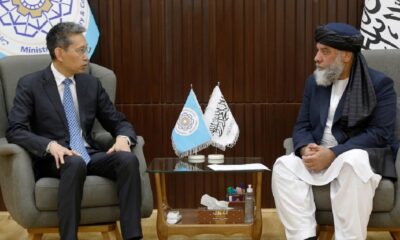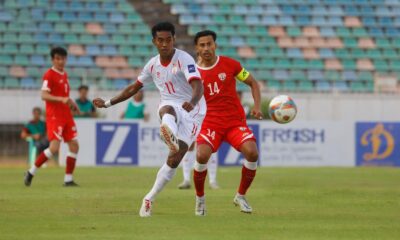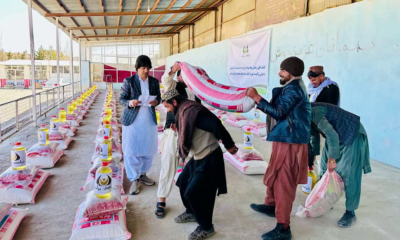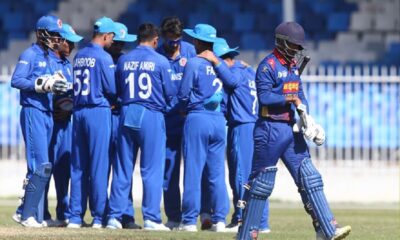Regional
Iran’s presidential election officially kicks off
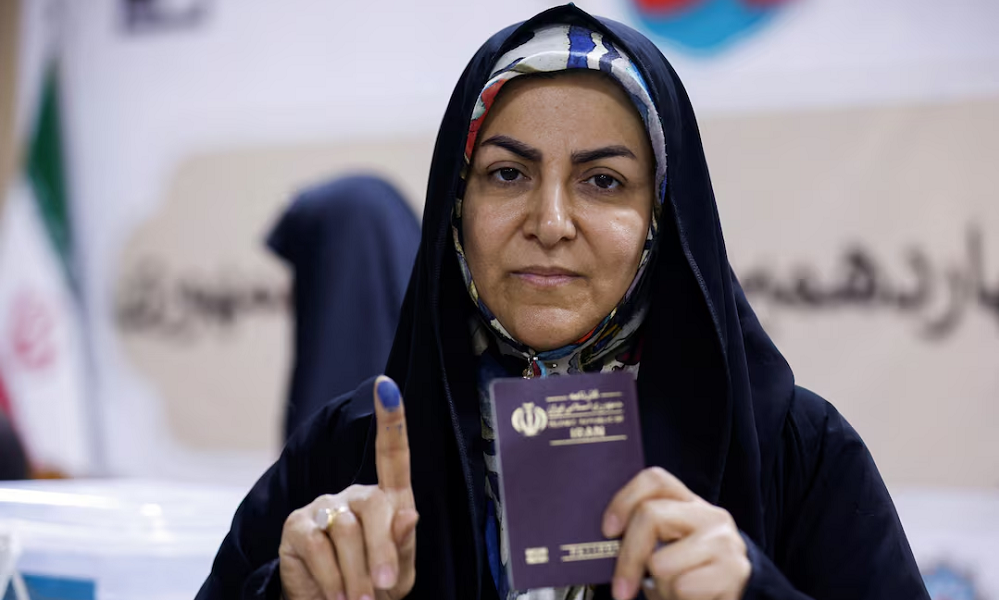
Iranians started voting on Friday for a new president following the death of Ebrahim Raisi in a helicopter crash, choosing from a tightly controlled group of four candidates loyal to the supreme leader at a time of growing public frustration.
State television showed queues inside polling stations in several cities. More than 61 million Iranians are eligible to vote. Polls were due to close at 6 p.m. (1430 GMT), but are usually extended as late as midnight, Reuters reported.
The election coincides with escalating regional tension due to war between Israel and Iranian allies Hamas in Gaza and Hezbollah in Lebanon, as well as increased Western pressure on Iran over its fast-advancing nuclear program.
While the election is unlikely to bring a major shift in the Islamic Republic’s policies, its outcome could influence the succession to Ayatollah Ali Khamenei, Iran’s 85-year-old supreme leader, in power since 1989.
Khamenei called for a high turnout to offset a legitimacy crisis fuelled by public discontent over economic hardship and curbs on political and social freedom.
“The durability, strength, dignity and reputation of the Islamic Republic depend on the presence of people,” Khamenei told state television after casting his vote. “High turnout is a definite necessity.”
Voter turnout has plunged over the past four years, as a mostly youthful population chafes at political and social curbs.
Manual counting of ballots means it is expected to be two days before the final result is announced, though initial figures may come out around midday on Saturday.
If no candidate wins at least 50% plus one vote from all ballots cast, including blank votes, a run-off round between the top two candidates is held on the first Friday after the election result is declared.
Three candidates are hardliners and one is a low-profile comparative moderate, backed by the reformist faction that has largely been sidelined in Iran in recent years.
Critics of Iran’s clerical rule say the low and declining turnout of recent elections shows the system’s legitimacy has eroded. Just 48% of voters participated in the 2021 election that brought Raisi to power, and turnout hit a record low of 41% in a parliamentary election three months ago.
The next president is not expected to usher in any major policy shift on Iran’s nuclear programme or support for militia groups across the Middle East, since Khamenei calls all the shots on top state matters.
However, the president runs the government day-to-day and can influence the tone of Iran’s foreign and domestic policy.
Regional
Egypt makes new proposal to restore Gaza truce as Israeli strikes kill 65
Palestinian officials on Sunday put the number of dead from nearly 18 months of conflict at over 50,000, read the report.
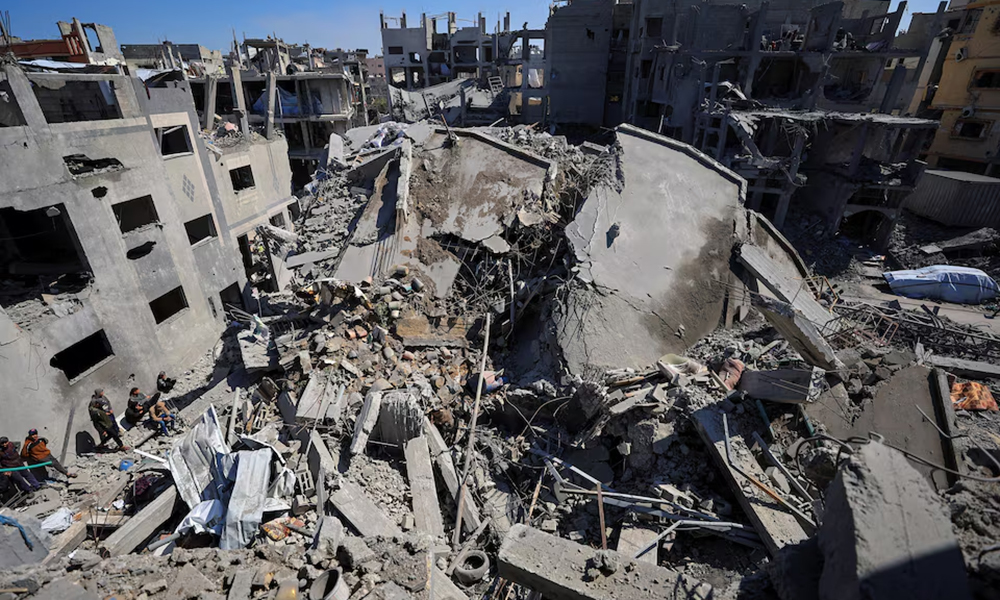
Egypt has floated a new proposal aimed at restoring the Gaza ceasefire deal, security sources told Reuters on Monday, as Palestinian health authorities said Israeli strikes had killed at least 65 people in the enclave in the previous 24 hours, Reuters reported.
The proposal, made last week, follows an escalation in violence after Israel resumed air and ground operations against Hamas militants on March 18, ending a two-month period of relative calm after 15 months of war.
Gaza health officials said Israeli airstrikes and shelling have killed nearly 700 Palestinians since then, including at least 400 women and children.
Among those killed on Monday were two local journalists, Mohammad Mansour and Hussam Shabat, medics said. The Palestinian Journalist Syndicate said at least 206 journalists have been killed by Israeli fire in Gaza since early October 2023, when the conflict erupted. There was no immediate Israeli comment.
Islamist group Hamas said several of its senior political and security officials had also been killed, read the report.
Later on Monday, the Israeli military said it had intercepted a missile launched from Yemen before it crossed into Israel. Warning sirens had sounded in Jerusalem, Tel Aviv and other areas. Iran-aligned Houthi forces in Yemen have at times fired missiles at Israel in support of Hamas fighters.
The Egyptian plan calls for Hamas to release five Israeli hostages each week, with Israel implementing the second phase of the ceasefire after the first week, two security sources said.
Hamas is still holding 59 hostages, with 24 thought to be still alive, among the more than 250 it seized in its October 7, 2023 cross-border attack on Israel. Most of the rest have been freed, or their bodies handed over, in negotiated exchanges.
Both the U.S. and Hamas have agreed to the proposal, the security sources said, but Israel has not yet responded, Reuters reported.
A Hamas official did not confirm the proposed offer, but told Reuters that “several proposals are being discussed with the mediators to bridge the gap and to resume negotiations to reach common ground that would pave the way to start the second phase of the agreement”.
The sources said the Egyptian proposal includes a timeline for a full Israeli military withdrawal from Gaza, backed by U.S. guarantees, in exchange for the release of remaining hostages.
Hamas has accused Israel of breaking the terms of the January ceasefire agreement but has said it is willing to negotiate a renewed truce and was studying proposals from U.S. President Donald Trump’s special envoy, Steve Witkoff.
Israel says it resumed its military operations to force Hamas to release the remaining hostages it is holding in Gaza.
On Monday, Hamas released a video it said showed hostages Elkana Bohbot, 35, and Yosef Haim-Ohana, 24, who were both abducted from the Nova music festival site on October 7.
Israel says it does its best to reduce harm to civilians and has questioned the death toll provided by health authorities in the Hamas-run enclave.
Palestinian officials on Sunday put the number of dead from nearly 18 months of conflict at over 50,000, read the report.
Israel launched its offensive in Gaza after Hamas fighters stormed southern Israel on October 7, 2023, killing 1,200 people, mostly civilians, according to Israeli tallies.
In Gaza’s southernmost city Rafah, the municipality said thousands of people were stuck inside the Tel Al-Sultan district where some Israeli military forces had entered, with families trapped among the ruins, with no water, food, or medicine.
The Palestinian Civil Emergency Service said 50,000 residents remained cornered in Rafah, which abuts the border with Egypt.
The Israeli military said troops had encircled Tel Al-Sultan to dismantle “terror infrastructure sites and eliminate terrorists in the area”.
A United Nations spokesperson said on Monday it would reduce its footprint in Gaza after five staff members of its Palestinian relief agency UNRWA were killed in the renewed conflict, but remains committed to providing aid to civilians.
Separately, UNRWA said 124,000 Palestinians have been displaced in Gaza in recent days.
“Families carry what little they have with no shelter, no safety, and nowhere left to go. The Israeli authorities have cut off all aid. Food is scarce and prices are soaring. This is a humanitarian catastrophe. The siege must end,” UNRWA said on X.
Regional
Trump’s offer of talks with Iran aims to avoid military action, US envoy says
Speaking separately on CBS News, the White House’s national security advisor, Mike Waltz, said the U.S. sought “full dismantlement” of Iran’s nuclear program.
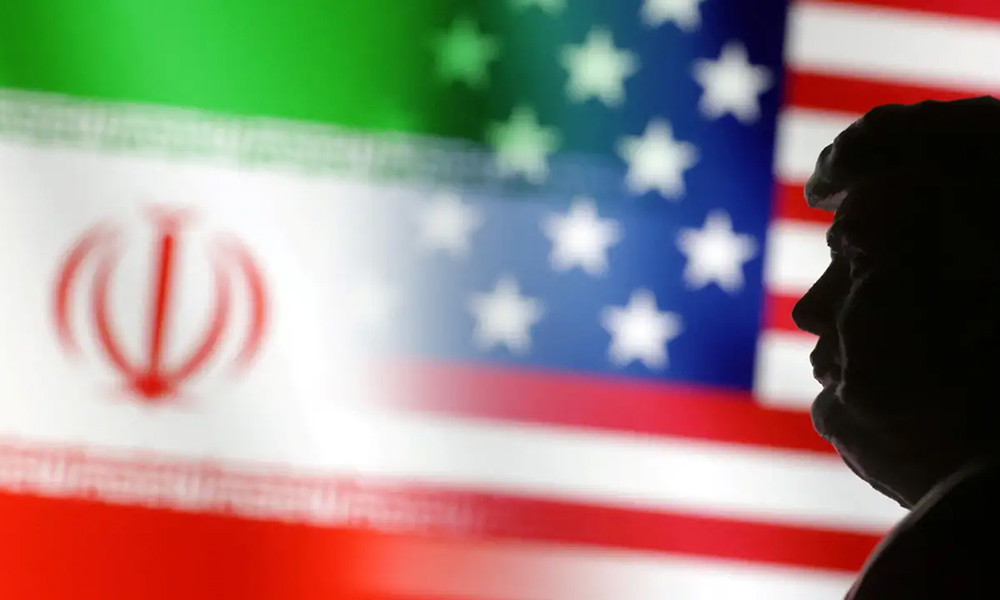
U.S. President Donald Trump’s outreach to Iran’s top authority, Supreme leader Ayatollah Ali Khamenei, on a possible new nuclear deal is an effort to avoid military action, U.S. special envoy Steve Witkoff said on Sunday.
“We don’t need to solve everything militarily,” Witkoff told Fox News.
“Our signal to Iran is let’s sit down and see if we can, through dialogue, through diplomacy, get to the right place. If we can, we are prepared to do that. And if we can’t, the alternative is not a great alternative.”
Trump said earlier this month that he had sent a letter to Khamenei, warning that “there are two ways Iran can be handled: militarily, or you make a deal.”
Khamenei rejected the U.S. offer for talks as “a deception,” saying negotiating with the Trump administration would “tighten the knot of sanctions and increase pressure on Iran.”
However, Iran’s foreign minister, Abbas Araqchi, said on Thursday that Tehran would soon reply to both the letter’s “threats and opportunities.” He cautioned on Sunday that talks with the U.S. are impossible unless Washington changes its pressure policy.
Speaking separately on CBS News, the White House’s national security advisor, Mike Waltz, said the U.S. sought “full dismantlement” of Iran’s nuclear program.
“Iran has to give up its program in a way that the entire world can see,” he said.
“As President Trump has said, this is coming to a head. All options are on the table and it is time for Iran to walk away completely from its desire to have a nuclear weapon.”
Tehran has long said the program is only for peaceful purposes.
U.N. nuclear watchdog chief Rafael Grossi said last month that time is running out for a deal to rein in Iran’s nuclear program as Tehran continues to accelerate its enrichment of uranium to near weapons grade.
While leaving the door open for a nuclear pact with Tehran, Trump has reinstated the “maximum pressure” campaign he applied in his first term as president, including efforts to drive the country’s oil exports to zero.
The U.S. has issued four rounds of sanctions on Iran’s oil sales since Trump’s return to the White House on January 20.
Regional
Hamas studies US ‘bridge’ proposal for truce as Israel escalates return to war
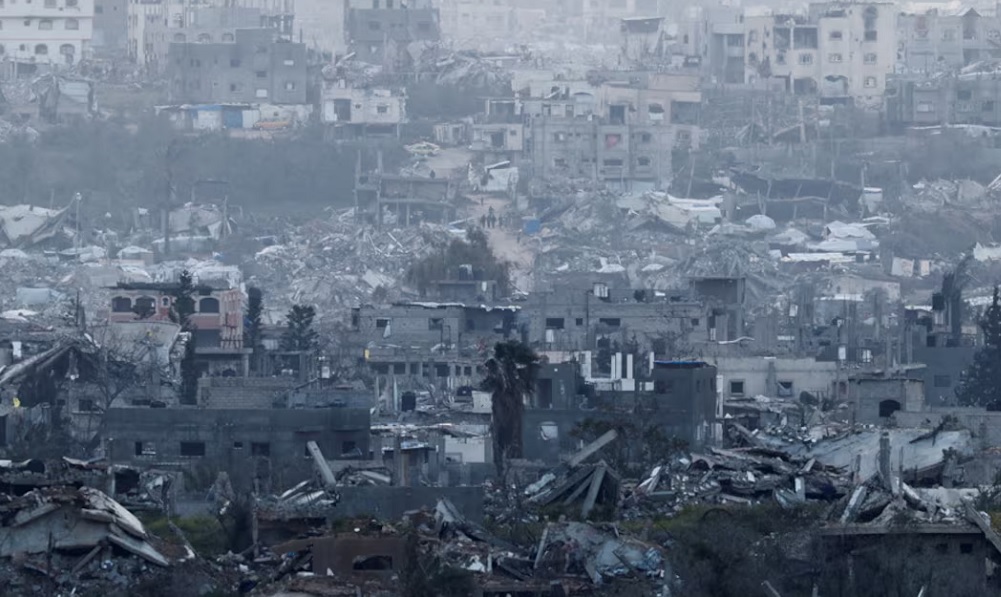
Hamas said on Friday it was reviewing a U.S. proposal to restore the Gaza ceasefire as Israel intensified a military onslaught to press the Palestinian militant group to free remaining Israeli hostages.
U.S. special envoy Steve Witkoff’s “bridge” plan, presented last week, aims to extend the ceasefire into April, beyond the holidays of Ramadan and Passover, to allow time for negotiations on a permanent cessation of hostilities, Reuters reported.
Three days after Israel effectively abandoned the two-month-old truce, Israeli Defence Minister Israel Katz said the military was intensifying its air, land and sea strikes and would move civilians to the southern part of Gaza.
Katz said Israel would continue its campaign until Hamas released more hostages and was totally defeated. Israeli airstrikes inflicted serious damage on Hamas this week, killing its Gaza government chief and other top officials.
But Palestinian and Israeli sources say Hamas has shown it can absorb major losses and still fight and govern.
Hamas said it was still debating Witkoff’s proposal and other ideas, with the goal of reaching a deal on prisoner releases, ending the war and securing a complete Israeli military withdrawal from the Gaza Strip.
A Palestinian official, speaking on condition of anonymity, told Reuters that Egypt also put forward a bridging proposal, but Hamas had yet to respond. The official declined to provide details of the plan, which he said was under consideration.
Two Egyptian security sources said Egypt had suggested setting a timeline for the release of the remaining hostages alongside a deadline for a full Israeli pullout from Gaza with U.S. guarantees.
The sources said the U.S. had signalled initial approval while Hamas’ and Israel’s responses were expected later on Friday.
A first phase of the truce ended at the start of this month, but Israel and Hamas could not agree on terms for launching the second phase. Hamas delayed further hostage releases and Israeli military action then resumed.
After two months of relative calm, Gazans were again fleeing for their lives under Israel’s new, all-out air and ground campaign, accompanied by another halt to aid deliveries.
Katz said the longer Hamas refused to free remaining hostages, the more territory it would lose. Of the more than 250 people originally seized in Hamas’ October 2023 attack on Israel, 59 remain in Gaza, 24 of whom are thought to be alive.
US BLAMES HAMAS FOR RESUMPTION OF ISRAELI ONSLAUGHT
Israeli airstrikes on Tuesday killed more than 400 Palestinians, one of the deadliest days of the 17-month-old war, and there has been scant let-up since.
On Friday, 13 people died. This included 11 people, among them six children, killed in Israeli airstrikes on houses in the Tuffah district of Gaza City in the enclave’s north, local health authorities said.
Two people were killed by tank fire in Abassan near Khan Younis in the south, according to Palestinian medics.
Hours later, the Israeli military said it had intercepted two projectiles from northern Gaza after alerts were activated in the Israeli city of Ashkelon.
Hamas’ armed wing claimed the attack, saying it was responding to Israeli “massacres against civilians” in Gaza.
Israel’s military reported it also intercepted a missile fired from Yemen after warning sirens sounded in multiple areas of Israel.
The Israeli military said it had killed the head of Hamas military intelligence in southern Gaza on Thursday. There was no immediate comment from Hamas.
The United States told the U.N. Security Council that Hamas was to blame for the deaths since hostilities resumed.
“Hamas bears full responsibility for the ongoing war in Gaza and for the resumption of hostilities. Every death would have been avoided had Hamas accepted the bridge proposal that the United States offered last Wednesday,” acting U.S. ambassador Dorothy Shea told the council.
The United Nations’ Palestinian relief agency UNRWA, one of the largest providers of food aid in Gaza, said it only had enough flour to distribute for the next six days.
“We can stretch that by giving people less, but we are talking days, not weeks,” UNRWA official Sam Rose told reporters in Geneva by video link from Gaza.
The humanitarian situation in Gaza was once again alarming, UNRWA said.
“Six of 25 bakeries that the World Food Programme were supporting had to close down,” Rose added.
“This is the longest period since the start of conflict in October 2023 that no supplies whatsoever have entered Gaza. The progress we made as an aid system over the last six weeks of the ceasefire is being reversed.”
Israel’s blockade has pushed up prices of fuel and essential foods, forcing many to ration their meals.
The war began after Hamas militants attacked Israeli communities near the Gaza border on October 7, 2023, killing 1,200 people, according to Israeli tallies.
More than 49,000 Palestinians have been killed in the ensuing conflict, according to Gaza’s health authorities, with much of the densely populated territory reduced to rubble.
-
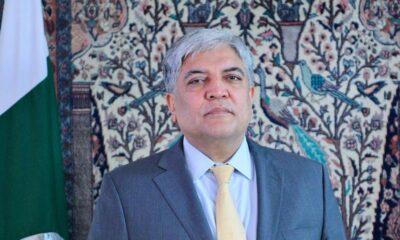
 Latest News4 days ago
Latest News4 days agoPakistan once again urges IEA to act against militants
-

 Sport4 days ago
Sport4 days agoAFC Beach Soccer: UAE thrash Afghanistan 7-1 in opener
-
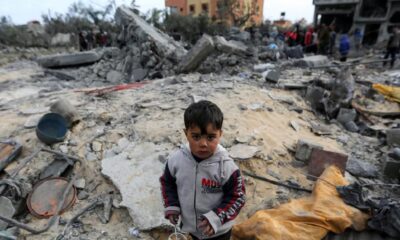
 Regional5 days ago
Regional5 days agoAt least 91 killed in Gaza as Israel abandons ceasefire, orders evacuations
-

 Latest News4 days ago
Latest News4 days agoAmerican freed by IEA reunited with wife, former cellmate, in US
-
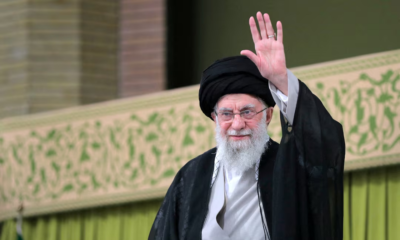
 Regional4 days ago
Regional4 days agoIran’s leader says Yemen’s Houthis act independently, warns against US action
-
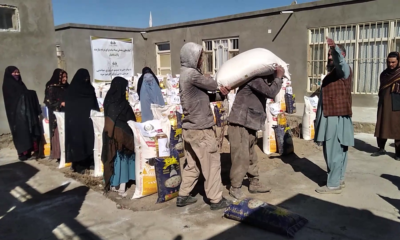
 Latest News4 days ago
Latest News4 days agoBayat Foundation delivers Ramadan aid to needy families in Bamyan
-
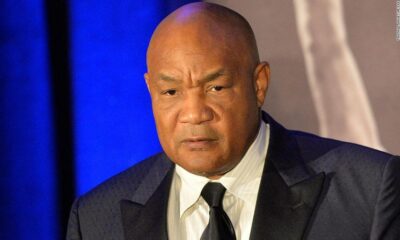
 International Sports3 days ago
International Sports3 days agoBoxing legend George Foreman dies at 76
-
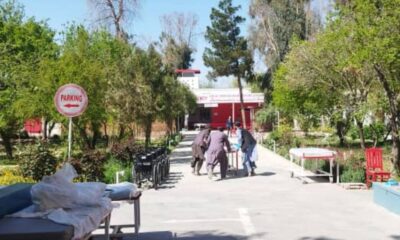
 Latest News3 days ago
Latest News3 days agoEighteen injured after dispute between two brothers in Helmand


